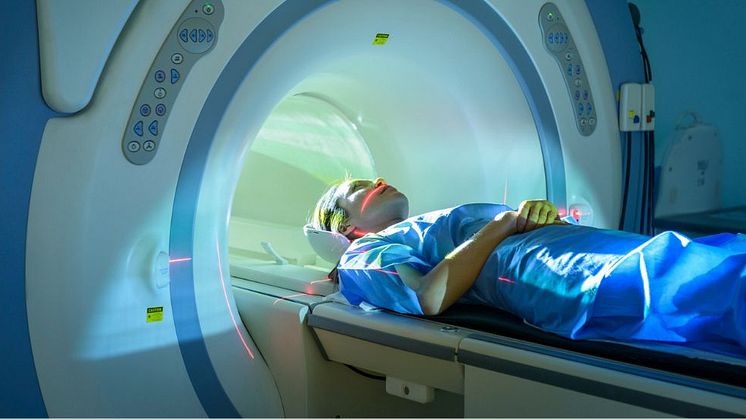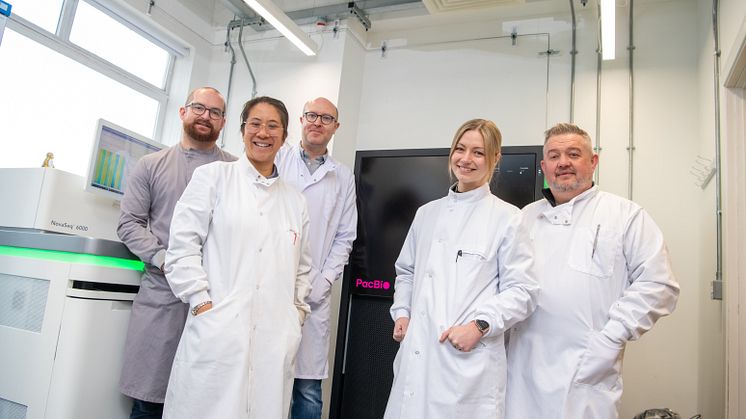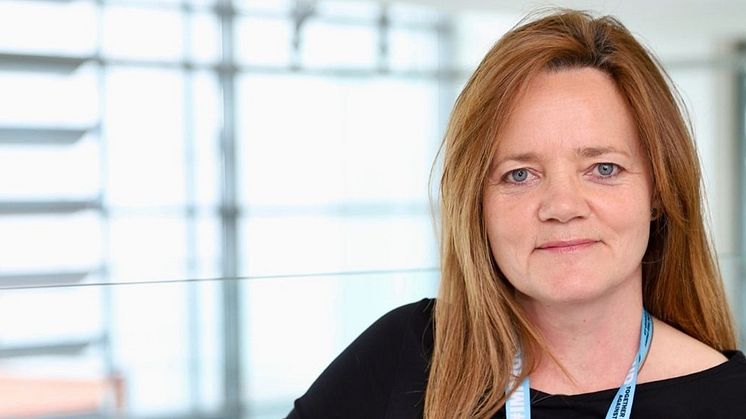
Press release -
New study finds more targeted approach to treating aggressive childhood brain cancer
Researchers have identified a critical group of medulloblastoma, a form of brain cancer in children, which is near incurable using current therapies.
The discovery of an aggressive genetic group will lead to better patient management of this form of tumour, which urgently requires new treatment approaches.
Their findings of two major studies, one of which was led by Northumbria’s Dr Ed Schwalbe, are published in the journal NeuroOncology today.
They provide critical evidence to help guide diagnosis and consider appropriate treatment dependent on the genetic make-up of the tumour.
This paves the way for more effective targeted approaches to treating these tumours, aimed at better prognosis, minimised long-term side effects and improved quality of life.
Medulloblastoma is among the most common malignant brain tumours of childhood cancer and is responsible for around 5 to 10% of childhood cancer deaths.
The two-phase £5 million INSTINCT programme set out to identify key genetic defects and find effective targeted approaches to treating Group 3 medulloblastomas which occur primarily in young children and are effectively incurable, contributing significantly to overall childhood cancer death rates.
The tumour is driven by the presence of a gene called MYC which triggers rapid disease growth and often results in treatment failure.
Bringing together the largest cohort of MYC amplified tumours ever studied, the researchers were able assess clinical and molecular data to see which factors affected survival and found critical variation in the clinical outcomes within this group.
The defect is only found in around 8% of medulloblastomas, with their rarity making them difficult to study.
Dr Ed Schwalbe, Associate Professor in Bioinformatics and Biostatistics in Northumbria University’s Department of Applied Sciences, led the first paper of the INSTINCT study which focused on diagnosis. The second paper of the study focused on targeted therapies.
Dr Schwalbe identified a group of patients with a “dismal prognosis,” having tumours with many copies of the MYC gene – typically between 10-40 copies, rather than the usual two, alongside other high-risk disease features such as metastasis.
Patients with such tumours are essentially incurable using current chemotherapy and radiotherapy.
The ability to more easily diagnose this group of patients will have an immediate impact, with clinicians having more information to know what they are dealing with and being able to have the right discussions with families.
Dr Schwalbe also identified other patient groups whose tumours do not have the additional high-risk features, meaning their disease is curable using current treatments.
“The definition of near-incurable groups of patients has the potential to immediately impact their clinical management,” he said.
“The delivery of chemo and radiotherapy is very gruelling for the patients, and their families, and we now know that this is providing little, if any benefit for those in this high-risk group, who urgently require new treatment approaches.”
Dr Schwalbe added: “I’d like to thank those parents and patients who consented to take part in this study. Understanding that children with MYC medulloblastomas have different outcomes helps us to select the best treatments and paves the way for new approaches to treat this devastating disease.”
The INSTINCT research programme began in 2015 and is led by Professor Steve Clifford, Director of Newcastle University Centre for Cancer. He explained: “Medulloblastomas with MYC gene amplifications are one of the biggest challenges in paediatric oncology. In our latest studies, we have identified an important group of these tumours which are essentially incurable using current therapies, and how to recognise them diagnostically.
“New therapies are urgently required to treat these tumours, but there has been a lag in their development. In our second new paper, we report our discovery that MYC tumours are dependent on a critical metabolic pathway – the serine/glycine synthesis pathway – for their growth and development, and that we can target this pathway using PHGDH inhibitor drugs in experimental models to slow tumour growth.
“Together, these studies provide the essential diagnostic characteristics that can immediately be used to identify this critical tumour group in the clinic, as well as an important targetable mechanism for the development of new therapies aimed at improving their outcomes.”
The studies were funded by national childhood cancer charity Children with Cancer UK, together with Cancer Research UK, The Brain Tumour Charity, Great Ormond Street Hospital Charity (GOSH Charity), Blue Skye Thinking and Little Hero.
Both Blue Skye Thinking and Little Hero were formed by families in the memory of their lost sons who passed away from medulloblastoma. John Rainsbury, Trustee of Little Hero and Dad to Will who died of Group 3 medulloblastoma at six years old, said: “As a family we are excited by the possibilities that this discovery provides and hope this new understanding can develop into meaningful treatments for other children facing what Will went through.
“Whilst diagnostics have progressed, surprisingly the actual treatment for medulloblastoma has changed little in 30 years, with the prognosis for high-risk versions remaining stubbornly poor. It is essential that we develop novel approaches to target high-risk disease far more effectively and give kids like Will a chance for the future.”
Children with Cancer UK’s Head of Research, Dr Sultana Choudhry, said: “We have a long-standing commitment to fund research to accelerate scientific discoveries to clinical translation of new treatments and better outcomes for children with cancer.
“This study represents a significant step towards more effective and targeted treatments for one of the most challenging forms of paediatric brain cancer.
“Through funding vital research such as the INSTINCT programmes we continue to improve outcomes for children with cancer and work towards achieving our vision of a world where every child and young person survives a cancer diagnosis.”
Both papers from the INSTINCT programme can be read in the journal NeuroOncology.
Press release adapted with thanks to Children with Cancer UK
Topics
Categories
UNIVERSITY OF THE YEAR 2022 (Times Higher Education Awards)
Northumbria is a research-intensive university that unlocks potential for all, changing lives regionally, nationally and internationally.
Two thirds of Northumbria's undergraduate students come from the North East region and go into employment in the region when they graduate, demonstrating Northumbria's significant contribution to social mobility and levelling up in the North East of England.
Find out more about us at www.northumbria.ac.uk
--- Please contact media.communications@northumbria.ac.uk with any media enquiries or interview requests ---












